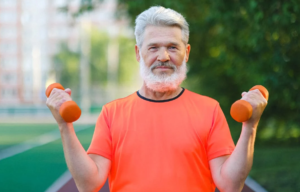Are athletes born or made?
Some people are better athletes than others. Even if two people are given the same training program, one will always do better. Why is this happening? To find an explanation, British scientists analyzed results from 3,012 adults between the ages of 18-55 who had not previously taken part in trainings – to determine how genes can influence three specific types of exercise: strength training, aerobics and the anaerobic capacity. All participants showed improvements after their training, but their results were different. Combining data from 24 separate studies, the research concluded that genetic differences are responsible for 72% of the variation in outcomes in individuals doing the same strength training. In aerobics, changes were found in 44% and in the improvement of anaerobic strength, which is the key to movement and agility in 10% of the participants. In addition to the genes, differences occurred due to other factors such as diet, recovery from exercise and injuries. Do you want to become the best and most successful personal trainer? You can do it just in two months if you attend the “Personal Training” seminar. Each gene has its own allele (an alternative form) and the type of alleles can affect how effective this gene is. Researchers believe that it is these allelic genes that cause the human body to respond differently to the same exercises. The study identified 13 genes and related alleles as responsible for how well the body responds to cardiovascular capacity, muscle strength and anaerobic training. Researchers believe that by testing an individual’s genes, experts could create and adapt a personal training program. “We know that exercise is good for us, but we all improve at different rates, even when we follow the same training. Therefore, it should be possible to improve the effectiveness of an exercise program by determining one’s genetic type and then adapting a specific program just for him. This could be especially beneficial for those who need improvements in the short term, such as hospitalized patients or major athletes, where even minimal improvements can make the difference between success and failure,” said Anglia Ruskin, a graduate researcher at the university. Giota Florou Source: studyfinds.org Recent Articles







